I-RIM MakerFaire Sabato 8 Ottobre 2022
Aula Magna ISA – Istituto Superiore Antincendi (National Fire Academy, Via del Commercio 13) ed in Streaming
TAVOLA ROTONDA
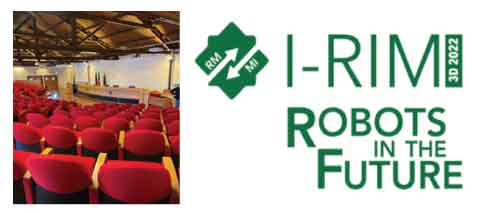
Tavola rotonda 1:
Titolo: Le nuove frontiere della ricerca della robotica e dell’Intelligenza Artificiale
Orario: 14:00-15:00
___________________________________________________________________________________
E’ proprio di questi giorni la conferenza stampa di Elon Musk che ha rivelato le sembianze e prestazioni del nuovo robot umanoide Optimus di casa Tesla. La reazione della comunità robotica è stata abbastanza tiepida ed è nato un dibattito sullo stato della ricerca in questo ambito e la fruibilità della tecnologie in prodotti di mercato.
Quali sono le reali prospettive di sviluppo delle nuove tecnologie della robotica ed Intelligenza Artificiale nel prossimo decennio e l’impatto societario atteso? Come possono operare le agenzie di ricerca ed i fondi di innovazione per favorire la nascita di nuove imprese e nuovi modelli di business?
Intervengono
- Dr. Jari Ognibeni, Deep-Tech Innovation, Pariter Partners
- Prof. Paolo Dario, Artes 4.0 Direttore Scientifico, Professore emerito biorobotica Scuola Superiore Sant’Anna
- Prof.ssa Valeria Falce, Prof Ordinario economia impresa, UER, Università Europea di Roma
- Dr. Alessandro Londei, Sony Computer Science Laboratories Paris, France
- Prof. Antonio Bicchi, Professore ordinario Robotica Università di Pisa, Senior Scientist IIT, Presidente I-RIM
- Prof.ssa Laura Giarrè, Professoressa Ordinaria Automazione UniMore
- Dr. Alexis Kouros, Helsinkitimes
Tavola rotonda 2
Titolo: La nuova agenda della ricerca in Italia, quale innovazione nei prossimi dieci anni?
Orario: 15:00-16:00
___________________________________________________________________________________
In Italia abbiamo un’opportunità straordinaria grazie alle numerose iniziative PNRR, partneriati estesi, centri nazionali di ricerca ed ecosistemi di innovazione.
Quali sono le prospettive della ricerca, e quali sono gli obiettivi strategici che la nuova agenda della ricerca deve porsi per rispondere alle esigenze della società, in vista anche degli obiettivi di sostenibilità? Qual è il contributo e l’impatto delle nuove tecnologie della robotica e dell’intelligenza artificiale?
Intervengono:
- Prof. Eugenio Guglielmelli, Professore Ordinario Bioingegneria, prorettore alla Ricerca (e futuro Rettore da Novembre 2022) dell’Università Campus Bio-Medico di Roma, Direttore Scientifico IRCCS Fondazione Don Gnocchi Onlus.
- Prof. Domenico Prattichizzo, Professore Ordinario Robotica , Coordinatore progetto europeo HARIA, Presidente EuroHaptics Society, Università di Siena
- Dr. Jonathan Menuhin, Israel Innovation Institute: CEO
- Dr. Matteo Elli, Innovazione Deep-Tech, ROBOIT/CDP,
- Dr. Luca Iadema, Digital Catapult Londra UK
- Dr. Andrea Pagnin, Head of Innovation & Development Office IIT,. Ecosistema di innovazione RAISE (collegamento a distanza)
- Prof. Filippo Cavallo, Professore di Ingegneria Biomedica, Università di Firenze THE Ecosistemi di Innovazione (collegamento a distanza)
Moderatore delle tavole rotonde è il Dr. Alessandro Ranellucci
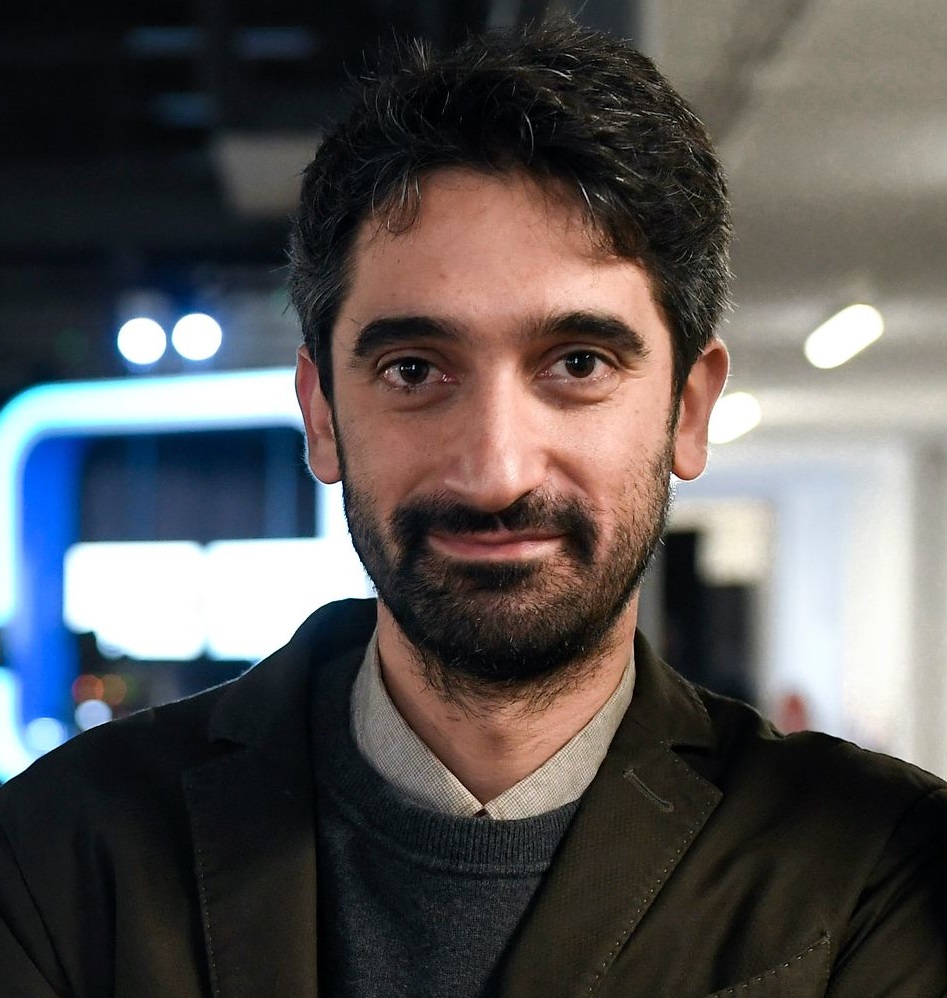 |
Alessandro Ranellucci è esperto di innovazione e tecnologia, curatore dei contenuti di Maker Faire Rome e direttore prodotti e community di Arduino. Precedentemente ha guidato il team di esperti di politiche del software all’interno della struttura per l’agenda digitale presso la Presidenza del Consiglio dei Ministri ed è stato direttore della Fondazione Make In Italy. Per dieci anni ha guidato il progetto open source Slic3r dedicato allo sviluppo di algoritmi software per la fabbricazione digitale. |
Biografia dei relatori
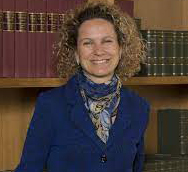 |
Valeria Falce Valeria Falce è Professore ordinario di Diritto dell’economia (Regolazione, Concorrenza e Proprietà Intellettuale), Coordinatore scientifico del Corso di Dottorato in “Persona e Benessere tra diritto, etica e psicologia” e Direttore dell’Innovation, Regulation and Competition Policy Centre – ICPC presso Università Europea di Roma. Titolare della Cattedra Jean Monnet (ad personam) in EU Innovation Policy, Commissione Europea – EACEA, è appena risultata vincitrice di una nuova Jean Monnet (ad personam) Chair in Digital Transformation and AI Policy. E’ Membro dell’Appeal Board Committee, EPO, Esperto WIPO – Organizzazione mondiale della proprietà intellettuale, Advisor non governativo del Network Internazionale delle Autorità di Concorrenza (ICN) e Avvocato, iscritto all’Ordine di Roma, abilitato al patrocinio presso le Giurisdizioni superiori. Attualmente è Consigliere giuridico del Ministro dell’innovazione tecnologica e della transizione digitale. |
|
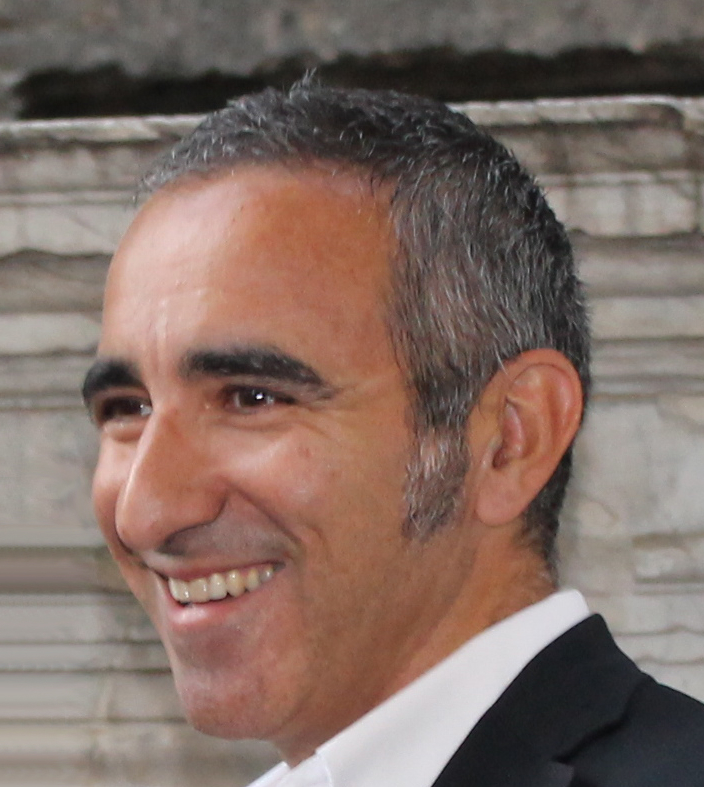 |
Domenico Prattichizzo Domenico Prattichizzo is Professor of Haptics and Robotics at University of Siena; Senior Scientist of the Istituto Italiano di Tecnologia in Genova; Co-founder of startup WEART on wearable haptics; Co-founder of startup EXISTO on wearable robotics; Co-founder of the Italian Institute of Robotics and Intelligent Machines; Editor in Chief of IEEE Transactions on Haptics; President of Eurohaptics society. Coordinator of the Horizon Europe Project HARIA on Human Sensorimotor Augmentation. Author of more than 500 publications in scientific journals, books and conference proceedings. Inventor of more than 12 patents filed of haptics, robotics and wearables. |
|
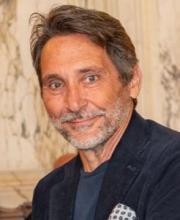 |
Antonio Bicchi Antonio Bicchi is a scientist interested in robotics and intelligent machines. After graduating in Pisa and receiving a Ph.D. from the University of Bologna, he spent a few years at the MIT AI Lab of Cambridge before Professor of Robotics at the University of Pisa. In 2009 he founded the Soft Robotics Laboratory at the Italian Institute of Technology a Genova. Since 2013 he is Adjunct Professor at Arizona State University, Tempe, AZ. His work has been recognized with many international awards and has earned him five prestigious grants from the European Research Council (ERC). He launched initiatives such as the WorldHaptics conference series, the IEEE Robotics and Automation Letters, and the Italian Institute of Robotics and Intelligent Machines. |
|
 |
Eugenio Guglielmelli Eugenio Guglielmelli è attualmente in servizio dal 2004 presso la Facoltà Dipartimentale di Ingegneria dell’Università Campus Bio-Medico di Roma (UCBM), dal 2010 come Professore ordinario, di bioingegneria industriale (SSD: ING-IND/34). In questo ateneo: è stato designato quale nuovo Rettore a partire dall’1\11\2022. Dal 2013, svolge il ruolo di Prorettore alla Ricerca, membro del Senato Accademico, della Direzione Ricerca Universitaria e Direttore del Centro Integrato di Ricerca (oltre 50 Unità di Ricerca e 400 ricercatori); è titolare di 3 insegnamenti (18 CFU totali) nel corso di Laurea Magistrale di Ingegneria Biomedica. Ha fondato nel 2004 e diretto fino al 2019 l’Unità di Ricerca di Robotica Biomedica e Biomicrosistemi; dal 2019, è Senior Member dell’Unità di Ricerca di Robotica Avanzata e Tecnologie Centrate sulla Persona; dal 2015 al 2019, è stato delegato CNUDD; dal 2010 al 2013 è stato Direttore degli Studi della Facoltà di Ingegneria; dal 2006 al 2009 è stato membro della Giunta del Centro Integrato di Ricerca. |
|
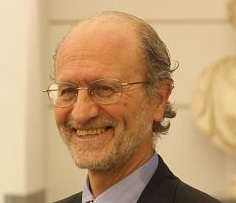 |
Paolo Dario Paolo Dario is a historical figure in robotics worldwide. He is a professor emeritus of biomedical robotics at the Sant’Anna School of Advanced Studies in Pisa, where he created and directed the Biorobotics Institute for years. He is a permanent member of the Institute of Electrical and Electronics Engineers (IEEE) and has an incredibly vast scientific production with several patents. He received many awards and recognitions, both nationally and internationally, including the prestigious Joseph Engelberger Award and the IEEE Ras Pioneer Award. |
|
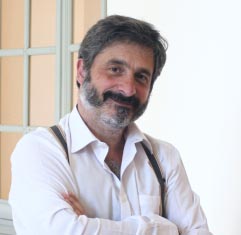 |
Alessandro Londei Alessandro Londei is research associated at Sony CSL Rome. Is the creativity process a prerogative of the human mind? Exploring new concepts, new different solutions to a given problem, or, more simply, taking into account an upcoming event never observed before, at present seems to be a challenging task for an artificial system. An efficient approach inspired by the human special way to address the concept of “new” should take into account a mix of hierarchical abstract and interconnected conceptual levels to be processed by an adaptively “fluid” artificial neural machine. Such approach would break several present constraints in the field of neural networks and deep learning, where the influence of static architectures and training algorithms limit the potential development of more promising neural topologies, mainly based on natural cognitive mechanisms, and allowing, at the same time, to deal with an incomplete knowledge of the perceived external world. In his research, Alessandro Londei tries to explore this unknown domain, looking for new neural architectures and efficient unsupervised training mechanisms driven by changing non-stationary environments, aimed at the identification and comprehension of an ecological artificial mind |
|
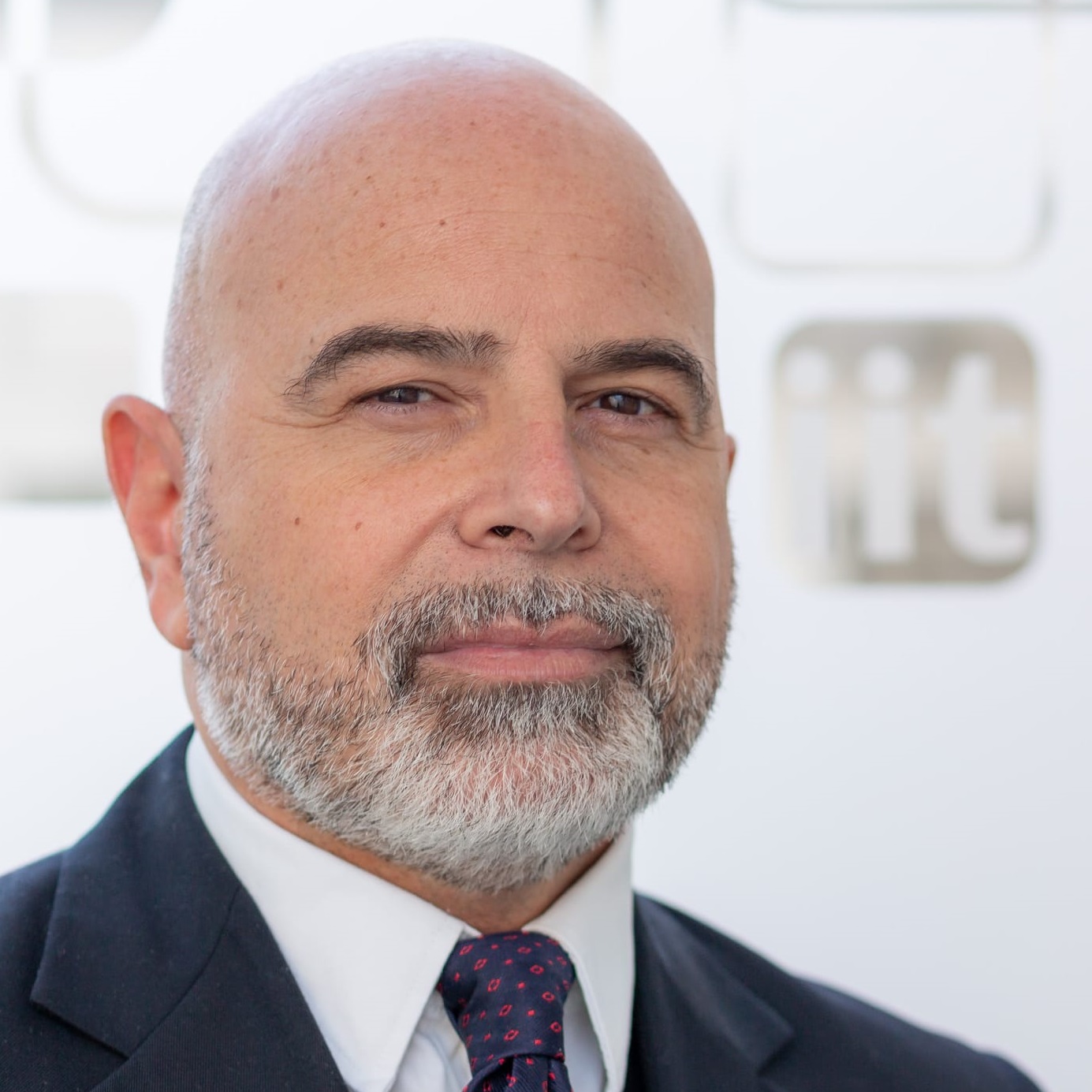 |
Andrea Pagnin Andrea Pagnin è responsabile dell’Ufficio Innovazione e Sviluppo dell’Istituto Italiano di Tecnologia all’interno della Direzione Trasferimento Tecnologico. Si occupa di progetti di innovazione che possono avere un impatto strategico e macreconomico per il raggiungimento della missione di trasferimento della tecnologia e di conoscenza della Fondazione. Ha un passato imprenditoriale, ha creato due start-up e ha una particolare esperienza per lo sviluppo di strategie di posizionamento dell’innovazione nel mercato. In IIT ha precedentemente lavorato nel team di sviluppo per la realizzazione di robot umanoidi intelligenti presso il Center for Robotics and Intelligent Systems dell’IIT dove ha maturato una significativa esperienza nell’analisi dello sviluppo di sistemi complessi. |
|
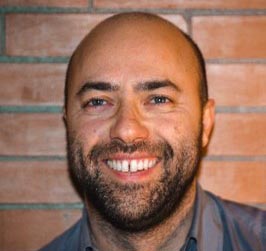 |
Filippo Cavallo Prof. Filippo Cavallo (M.Sc. degree in EE and the Ph.D. degree in bioengineering) is Associate Professor of Biomedical Robotics with the Department of Industrial Engineering, University of Florence, Italy. The objectives of his research activities are to promote and evaluate novel service robotics for active and healthy ageing, and to identify and validate disruptive healthcare paradigms for neurodegenerative and chronic diseases, focusing on prevention and support for physical and cognitive declines. The main scientific and technological challenges concern social robotics, human robot interaction, wearable sensors, Internet of Things and artificial intelligence for robot companion and healthcare applications. He has participated in various national and European projects and is the author of various papers on conferences and ISI journals. |
|
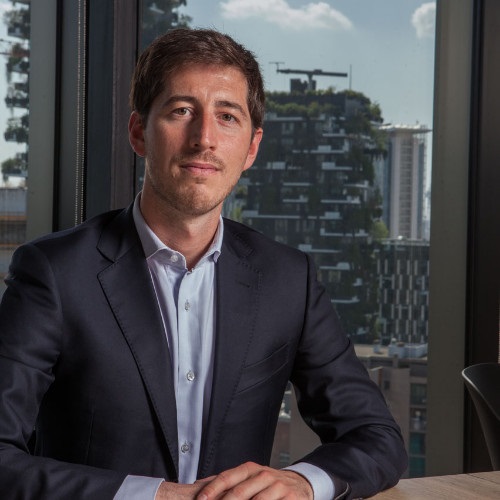 |
Matteo Elli Matteo Elli is a business angel with shares in Italian and foreign companies active in the artificial intelligence, new materials, life sciences, IT, innovative services, sharing economy and other sectors (e.g. Glovo, Joywell, HepaTX, Senti Bio, Kuleana, Get My Car, Curve, Philo, Skip, Waynaut). With more than 10 years of experience in the financial sector and investment banking, Matteo gained experience as Analyst in Mediobanca focusing on telecommunication, industrial and consumer goods. He then moved to Fondo Italiano Investimenti, where he took up the role of Investment Associate in the team dedicated to the Fund of Funds, finalizing investments in more than 20 Venture Capital and Private Equity funds for a total investment amount of more than 500M€. Subsequently, Matteo structured, launched and managed the Venture Capital investment vehicle of the main Italian private banking group with a budget of 30M€. RoboIT is the first National Technology Transfer Hub launched by CDP Venture Capital in collaboration with Pariter Partners and created together with the Italian Institute of Technology in Genoa with the involvement of the University of Naples Federico II, the University of Verona and the Scuola Superiore Sant’Anna di Pisa, ones of the major research centers in Italy specialized in the robotics sector. |
|
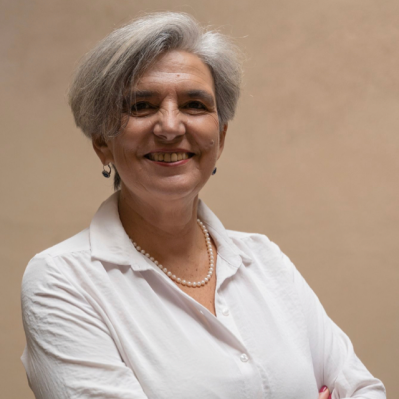 |
Laura Giarré Laura Giarré received the Laurea degree in Electronic Engineering from the Università di Firenze, Florence, Italy and the Ph.D. degree in System Engineering from the Università di Bologna, Bologna, Italy, in 1986 and 1992, respectively. She has held visiting positions at the Department of Mechanical Engineering of the University of California at Santa Barbara (CA) and at the Laboratory for Information and Decision Systems and Computer Science Artificial Intelligence Laboratory at MIT, Cambridge, Boston (MA) (1999, 2006, 2015). She was Assistant Professor at Politecnico di Torino, Turin, Italy (1993-1998); Associate Professor at the Università di Palermo, Palermo, Italy (1998-2016) and she is Full Professor at the University of Modena and Reggio Emilia, Modena, Italy since 2016. |
|
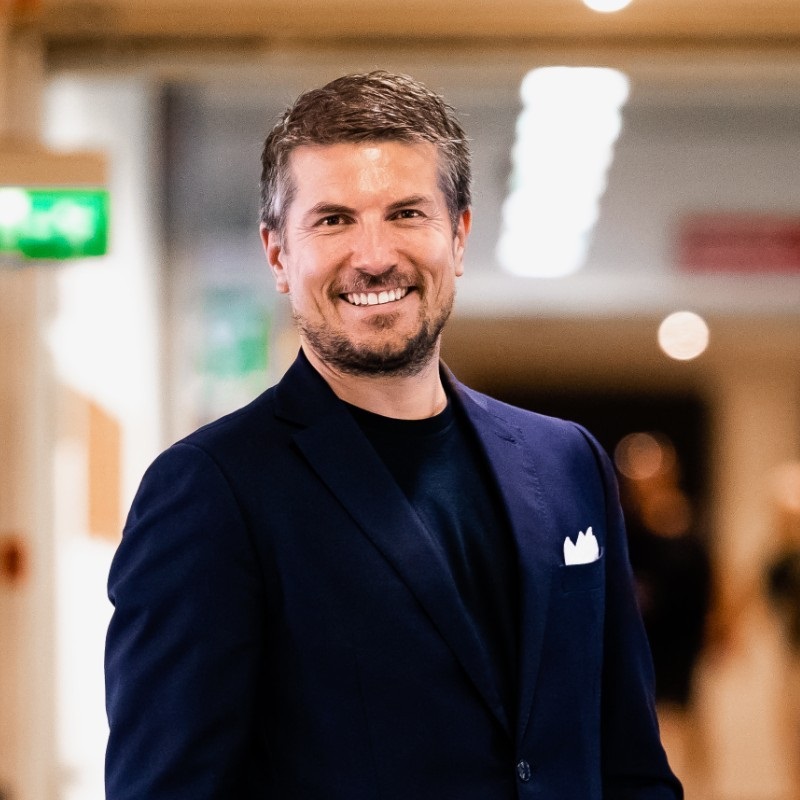 |
Jari Ognibeni 14 years of experience in innovation consulting and in investments in innovative startups and SMEs in Italy and abroad. In 2013, Jari Ognibeni founded Industrio Ventures, the first accelerator dedicated to hardware and manufacturing startups in Italy, where he invested 1.5M€ raised from institutional investors, business angels and international entrepreneurs. Jari Ognibeni led the whole model for the scouting and investments in 10 technological startups and he realized 3 exits, with an average multiplicator of 3x on the initial investment. Jari Ognibeni is a very active business angel with more than 40 investments (e.g. Multiply Labs, Perceptive) realized in the last 5 years in companies worldwide, principally in California and in the robotics and artificial intelligence fields. |
|
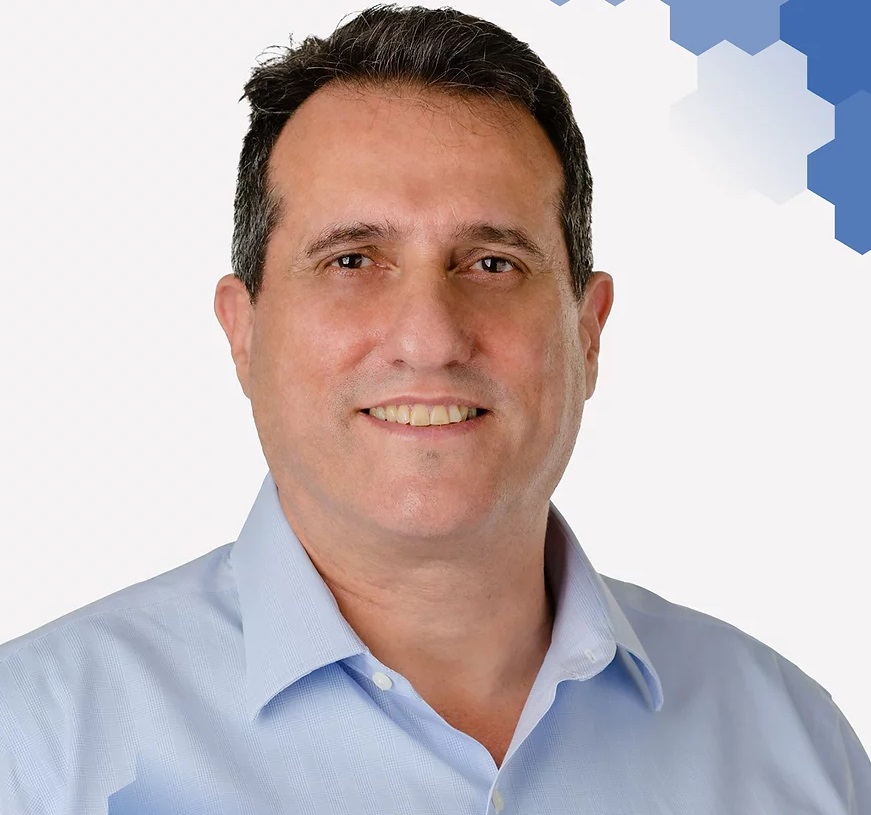 |
Jonathan Menuhin Jonathan’s career has focused on links between organizational processes and strategic needs for more than 20 years, working as an Organizational Development consultant; an economics and business consultant in EBRD and the World Bank projects; business strategy researcher and lecturer, managing the Israeli major CSR and Sustainability consultancy; and as the Institute CEO. Jonathan received his PhD from Warwick Business School (UK) on analyzing HSBC (UK) innovation processes and has BA and MA degrees from the Hebrew University of Jerusalemfields. He is the CEO of the Israel Innovation Institute https://www.israelinnovation.org.il/meet-the-team |
|
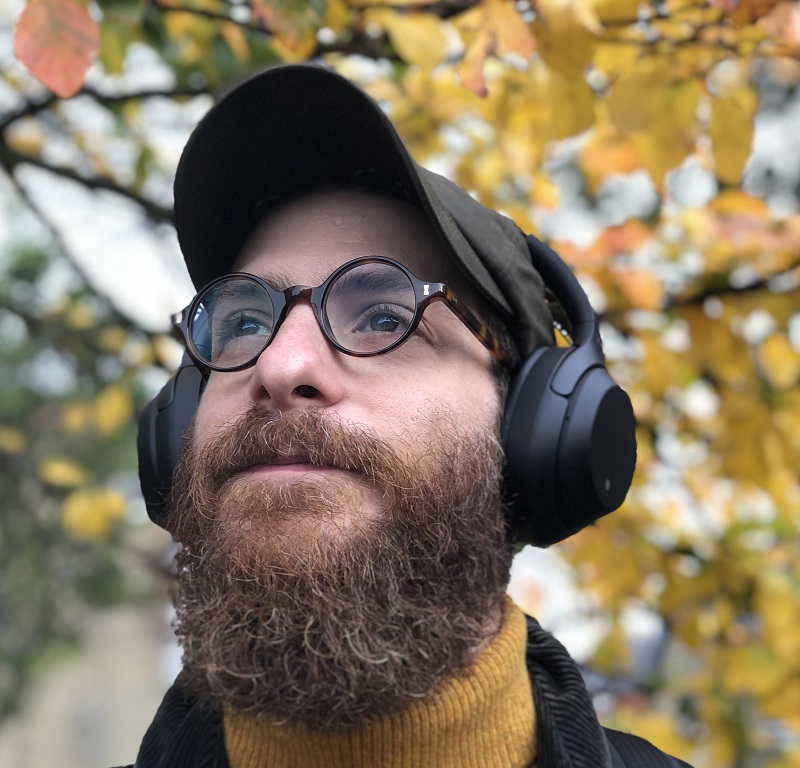 |
Luca Iadema Luca Iadema Digital Designer graduated from Milan’s Polytechnic University. Co-founder of a digital consultancy, for 10 years he advised brands, political candidates and the Public Administration on their digital strategies and helped building products for SMEs and corporates. Now leading the digital product team at Digital Catapult in London. Experienced in UX/UI, branding, digital design, user research and anything that helps moving from problem to solution stage, and strong advocate for Agile software development practices./td> |

